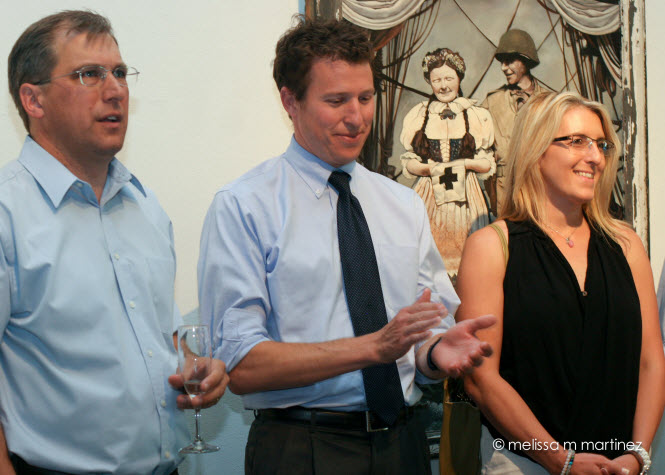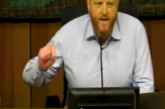
Last meeting was out with the old and this meeting is in with the new. Over the last month since the June 5 elections, many Davis residents and observers have looked forward to a new council for a variety of reasons.
However, there are some unique challenges that this city council will have to overcome. The first challenge has been noted and referenced, and that is the lack of institutional memory.
We have five councilmembers, and none served on the council before July 2010. We have a new city manager who has been on for less than a year, our finance director is gone, and we have a new person in charge of public works.
This is a much more serious concern than many might first think. At the most basic level, there is a danger for a new council to come in and change policies without fully appreciating the background of those policies and where they are rooted.
Along similar lines there is a general lack of experience in Davis by this council. How much of a concern should that be? I hearken back to 2008 with the school board. They were facing millions in cuts. It was a crisis. And unfortunately the inexperience of that board at that time made the crisis worse.
That board was likewise comprised of members who had been elected two years or less. They had a new superintendent and a new finance director. Their first steps were all missteps. Calls to close down Emerson Junior High, close down the Montessori School, close down DaVinci, and to end arts, music and foreign language were all floated and eventually dismissed.
The good news is that they avoided the worst of these decisions. The better news is that they learned from their mistakes and got better in crisis management. But in the short term it led to a series of long and contentious board meetings and a good deal of anguish among parents and students that would have been avoidable with better experience.
The proof of that is that the district has had shortfalls every bit as bad as the ones that befell them in 2008. In fact, worse, because the district has already absorbed millions in cuts, and yet those layoffs and proposals have gone smoothly without the kind of panic we saw in 2008.
We have already seen missteps by the city council. Back in 2010, a new council breezed through an agenda led by a new mayor who believed he could shorten meetings and get the business of the city done. But they failed to adequately investigate and challenge the ZipCar contract, which would lead to embarrassment and potential liability before the contract was ultimately cleaned up.
More seriously, the inexperience on the council, the transition of the city manager, and retirements among public works staff led to a huge debacle with the water rates in September 2011. The flawed rate hikes led to a referendum signature drive that would put the matter to a vote.
Wiser heads ultimately prevailed and the council has wisely put the water project into the hands of professional staff and a citizen advisory body to reexamine. What will emerge from this process is undoubtedly a better project.
The public needs to understand that there will be growing pains along the way. The good news is that this council is cleaning up problems handed down by the previous council – problems on the budget, unsustainable compensation and retirement packages, a water project pushed forward without adequate community input, and much more.
Still, the council and new city manager have had their stumbles. The council and city failed to implement the $2.5 million in personnel cuts from the 2011-12 budget. The council and city staff, in cleaning up from errors in imposing the last, best and final offer to DCEA, laid off nine employees including tree trimmers, which has angered many in the public.
Lack of experience can be overcome, but the lack of institutional memory is a more vexing problem. The institutional memory in the city right now is City Attorney Harriet Steiner. That is a problem on several levels.
First, it is not the city attorney’s job to provide the council with policy advise or be the voice of institutional memory to tell the council why they put a given policy in place.
That lack of memory is exacerbated by the city’s lack of video retention policy. Until just recently, the city discarded videos of council meetings that were over six months old. The city has now changed that policy at the urging of the Vanguard (we thought they had done this in 2009, but learned that this had not occurred).
This means that the only record of votes are contained in the minutes, which are barebones at best, and a few issues that made the paper in sufficient detail to understand the arguments brought up at the time and the rationale for the policies.
Another problem is that many have criticized Harriet Steiner as it is for directing city policies on a number of issues, and this will simply feed into that criticism whether it is warranted or unwarranted.
Finally, for those who believe that it is time for a new city attorney, those advocating that she remain in place have a powerful argument based on institutional memory.
That said, institutional memory is a double-edged sword and sometimes it ends up protecting policies that have no business being in place. Having a new council will allow the council to evaluate these issues on their current merits which may allow them the freedom to make policy changes other councils would have resisted.
Finally, a discussion as to who will get assignments for subcommittees, 2 by 2’s, and who will sit on regional boards triggered a new revelation for challenges facing the council.
From 2006 to 2010, the Davis City Council had two retirees, a third council member who did not work, a fourth councilmember who owned his own business and thus had somewhat flexible hours, and only Lamar Heystek had a 9 to 5 job.
That meant that the council had three and maybe four members who were always available to sit on regional bodies that met during business hours.
That is no longer the case. We have noted that this is a relatively young council with no one older 50 at this point. But that means that all five councilmembers have day jobs. Two of them work out of town. The mayor has somewhat flexible hours, and Rochelle Swanson has some flexibility, as does Brett Lee.
But now suddenly all of those regional bodies will be a challenge for the member to get to meetings and to keep up with critical information that will be on future agendas impacting Davis.
That will require staff to be assigned to monitor these bodies more closely, which will put a further strain on the time of city staff.
It is a problem that few people probably recognized when they went to the polls, and while it may not be insurmountable, it does prove to be a new and different kind of challenge for this new council.
—David M. Greenwald reporting






[quote]That lack of memory is exacerbated by the city’s lack of video retention policy. Until just recently, the city discarded videos of council meetings that were over six months old. The city has now changed that policy at the urging of the Vanguard (we thought they had done this in 2009, but learned that this had not occurred).[/quote]
The Vanguard was absolutely right on this issue – videos should be retained for quite a length of time…
[quote]That said, institutional memory is a double-edged sword and sometimes it ends up protecting policies that have no business being in place. Having a new council will allow the council to evaluate these issues on their current merits which may allow them the freedom to make policy changes other councils would have resisted.[/quote]
Frankly, I would like a fresh look to be taken of many city issues. I’m looking forward to what our Council members will have to say…
I think another way to say what Ms Musser is getting at when she says “I would like a fresh look to be taken of many city issues” is to say that having a group of new CC members allows them to ask “why”? Why are we doing it this way? Why is this approach, this policy, this action in place? They can ask these questions genuinely and while it may take some time to dig into the answers such an approach does force all of us to consider the “ends” of what we are doing. What are we hoping to achieve with the policies and approaches we have in place? My experience in a variety of organizations has taught me that new leaders play a very useful role (even though it can be maddening to long-time staff) when they ask “why”.
To follow up on Robb Davis’ point, a new city council can ask why, and not necessarily have a [i][b]preconceived mindset[/b][/i]. This is what I think is so important – to take a look at things from a [i][b]fresh perspective[/b][/i]…
There is a balance to be struck. Knowing the facts… including the history of issues and decisions… is important… especially to prevent the same mistakes from occurring. However, leaders that spend too much time looking backward will not be able to effectively lead a forward-looking strategy.
There is a principle of project management “Estimate to Completion” (ETC). This is a simple but profound concept. It is used to combat the risk of project failure costs from an emotional connection to the past. At every critical milestone of the project plan a new feasibility argument should be made. Past costs are already sunk. So, the only things that project sponsors should concern themselves with are the estimated costs and benefits from this point forward. If the ETC exceeds the estimated benefits, then the project should be killed at that point. The benefits extracted are the lessons learned for the next project. That then becomes the institutional knowledge that new leaders should have access to so they don’t try the same project/approach again.
However, many of the most profound project successes have occurred with leaders sticking to a vision that conflicted with so much institutional knowledge. These leaders would have failed to launch seeking consensus for their ideas, because consensus would not exist. Consensus can kill innovation and creativity. It constrains leaders and empowers blockers. The key is to have a process of discovery prior to each decision to launch, but then once the vision is solidified the project is planned and executed. And, assuming a rigorous-enough discovery phase at each decision milestone, those prone to continued complaining and blocking should be ignored or at least have their rants confined to a virtual parking lot (pun intended).
Public governance cannot be run exactly like corporate governance; however, I think it needs to be run MORE like corporate governance. It seems much of our public problems have to do with poor decision processes. It also seems that we have gravitated more to a more pure style of democracy where special interests and perpetual activists have too much influence, and corrupt our political leaders’ decision-making capability as should be available in our representative-style democracy as originally designed.
Great leaders should be great listeners. They should convey the message “I hear you”; but then demonstrate the conviction to move forward with a vision. At some point a leader needs to stop seeking consensus and start taking actions… otherwise they are not a leader and should be replaced.
Remember that a decision to do nothing is still a decision and fraught with risk. Risk aversion can be a personality flaw that causes as much damage as does recklessness.
What we need is a balanced approach that leverages as much creativity and innovation is it does institutional knowledge. But ultimately it doesn’t matter unless we actually do something.